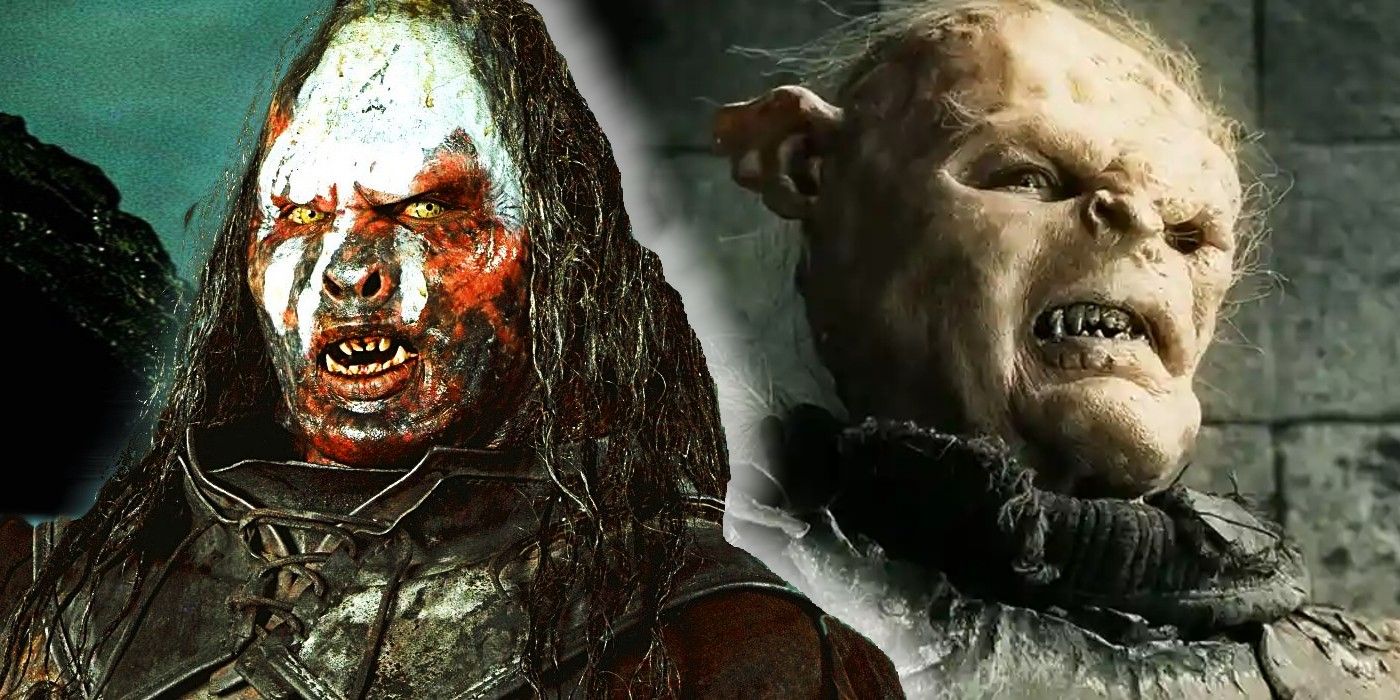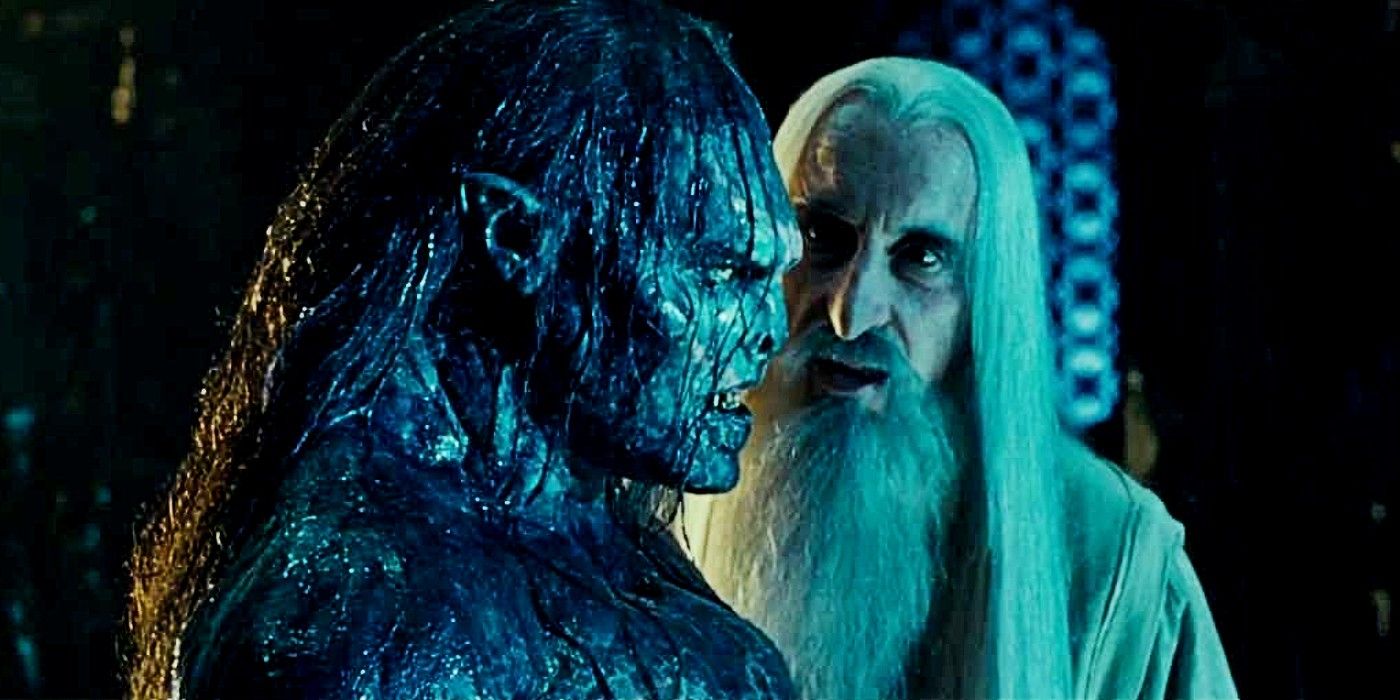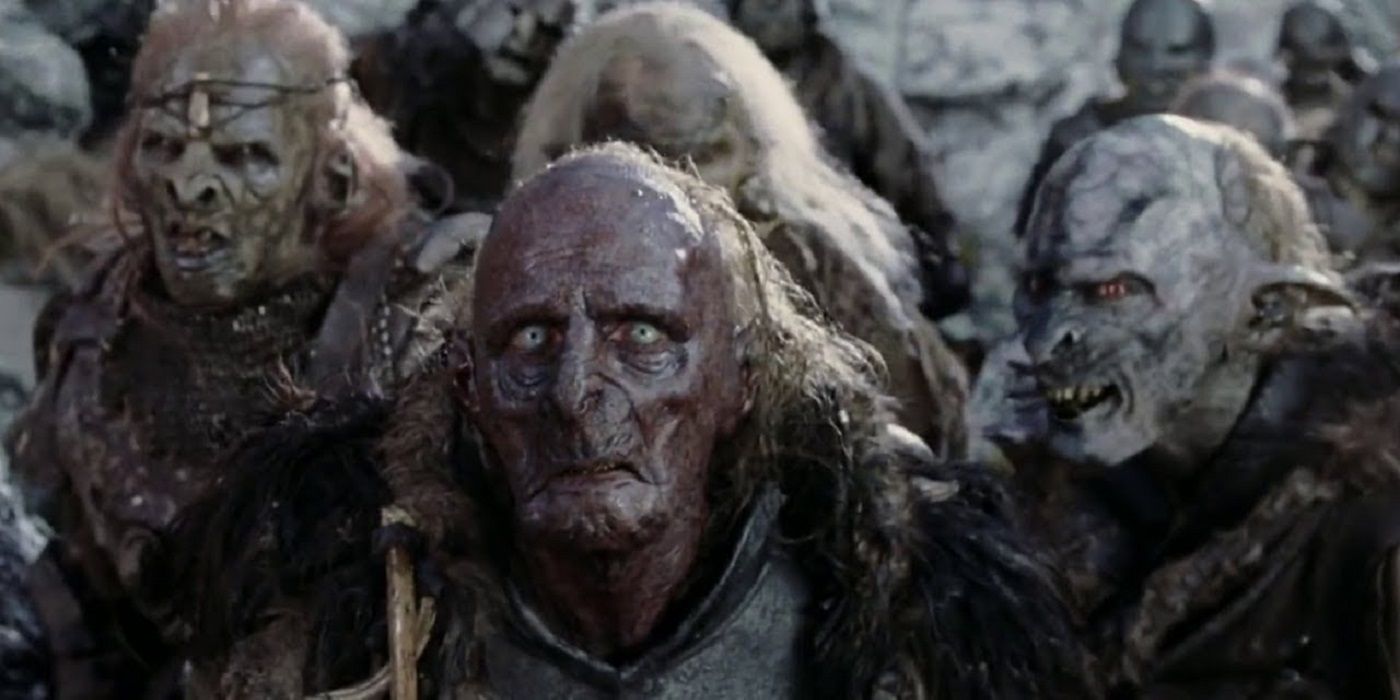The Lord of the Rings evokes a full spectrum of emotion -- from joy to despair to anger -- over the course of Peter Jackson's film trilogy. There are also a few scenes that are just plain gross. Of those, the most disgusting arrives in The Two Towers, when Saruman breeds his Uruk-hai to attack Rohan. The Uruks claw their way out of a sludge-filled membrane, immediately ready for battle.
Shortly afterward Saruman tells his Uruk captain about the origin of the Orcs. "They were Elves, once," the White Wizard says. Taken in untold ages, the Dark Powers tortured, corrupted and bred the captive Elves until they became the vile Orcs. That would have been a tragic origin, except the film version of Saruman doesn't exactly have his facts straight.
Tolkien Had Several Origin Stories for Orcs
Author J.R.R. Tolkien had all kinds of ideas for the Orcs' origin, but he couldn't make up his mind. Over the years, he changed their backstory multiple times because he kept running into continuity issues. The earliest idea came in The Book of Lost Tales (1917-1920), which stated that Melkor (Morgoth) created the Orcs out of "the subterranean heats and slime. Their hearts were of granite and their bodies deformed." In 1937, Tolkien slightly revised his story in the Quenta Silmarillion so that Morgoth still created the Orcs, but he did so after the Elves awoke at Cuiviénen. The difference in timing meant that Morgoth created the Orcs in direct mockery of the Children of Ilúvatar.
A few years later, Tolkien wrote the Annals of Aman (1950). That work was the first time Morgoth didn't directly create the Orcs because, as one of the Valar, he couldn't actually instigate life. So, he captured Elves from the East and corrupted them into Orcs. That was an improvement to the story because it demeaned Morgoth's power. However, it also created a new problem. Elves were immortal and went to the Halls of Mandos when they died. Yet, there has never been any mention of Orcs being supreme enough to be immortal. So, when he revised the Annals, Tolkien wrote in the margins, "Alter this. Orcs are not Elvish."
Prime Video's The Rings of Power opted to use the corruption of the Elves as its foundational myth for the creation of the Orcs. During Galadriel's interrogation of Adar, viewers learn he is one of the "Moriondor," or "Sons of the Dark." He, along with many of his kin, were captured and tortured by Morgoth to the point that they no longer considered themselves Elves. They instead became Uruks, Black Speech for Orc.
Morgoth's Corrupted Elves Is the Most Compelling Orc Theory
Tolkien developed a whole new idea in a 1959 essay found in Myths Transformed book (compiled by his son, Christopher Tolkien). The new theory stated that Orcs were soulless animals that Morgoth corrupted and then taught to do his bidding like evil pets. Around that same time, Tolkien wrote Quendi and Eldar (1959-1960). In an appendix, he moved the awakening of the race of Men from the beginning of the First Age to even before the Great March of the Elves. He did that in an effort to accommodate Morgoth, having taken them captive and corrupting them, much like he did with the Elves in the 1950 version of the Orcs' origin.
Because of all the changes in the legendarium, there isn't a definitive answer as to where the Orcs came from. However, Morgoth corrupting the Elves is the most popular theory among fans. After all, it was what Saruman told his Uruk-hai chief. However, the origin of the Elves will remain a hotly debated topic because -- much like Tom Bombadil's origin and age -- there isn't a definitive answer.
For example, some fans think the first Orcs were fallen Maiar, like the Balrogs, and they interbred with evil Men. Honestly, though, a definitive answer isn't totally needed. Some of these theories aren't mutually exclusive, meaning it's possible that some of them could exist simultaneously. There's nothing saying that Morgoth couldn't have corrupted Elves, Men and sentient beasts.



